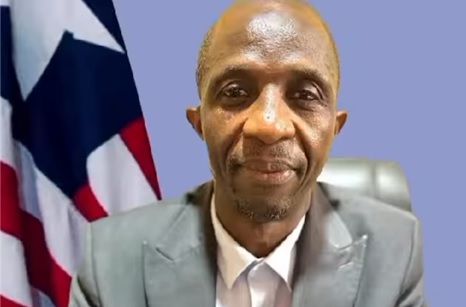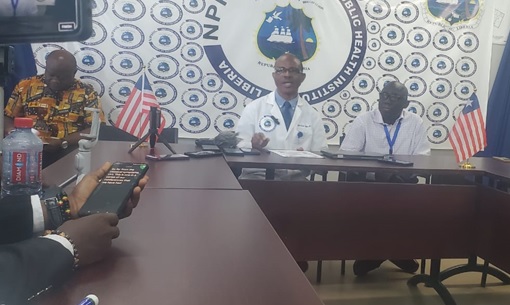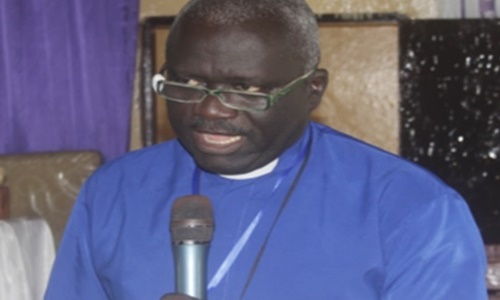LIBERIA – The Monrovia Consolidated School System (MCSS), led by Superintendent James A. S. Momoh, is embroiled in a significant corruption scandal, with allegations of kickbacks and conflicts of interest on contracts worth over $1.6 million. According to an investigation by Verty News, Superintendent Momoh awarded these contracts without adhering to Liberia’s Public Procurement and Concession Commission (PPCC) Law, sidestepping the mandatory competitive bidding process.
Two substantial contracts are at the center of this controversy. The first, valued at $1,210,000, was granted to Ma Mus Group of Investment for the procurement of 22,000 corrugated armchairs at a unit price of $55. The second contract, amounting to $451,500, was awarded to Kpeinja Ventures Incorporated to supply laboratory equipment to 25 schools under MCSS. Documents obtained by Verty News—comprising emails, WhatsApp exchanges, and even audio recordings—suggest that these contracts were allegedly awarded in exchange for kickbacks to Superintendent Momoh and his associates.
Leaked conversations further reveal a deal between Superintendent Momoh and his accomplices, involving a $10 kickback on each of the 22,000 chairs, amounting to an anticipated $220,000. Additionally, Kpeinja Ventures is said to have already paid $25,000 in kickbacks from the laboratory equipment contract. Adding a personal dimension to this scandal, Superintendent Momoh is reportedly in a romantic relationship with Ms. Sonita Dangan, MCSS’s Director for Instruction and Curriculum. A portion of the kickbacks, allegedly around $8,000, went towards a white Toyota Venza SUV for Ms. Dangan.
The investigation further implicates a key figure, Mr. William Kpardeyea, who reportedly has close ties to President Joseph Boakai. Kpardeyea is alleged to have played a central role in securing the $1.21 million armchair contract for Ma Mus Group of Investment, suggesting a possible conflict of interest at high levels of government. Communication between Superintendent Momoh and Kpardeyea, including emails and text messages, indicate their mutual interest in the armchair contract, raising concerns about the integrity of the MCSS leadership.
Liberia’s PPCC Law requires a competitive bidding process for any contract exceeding $10,000, yet Verty News reports that neither the $1.21 million chair contract nor the $451,500 laboratory equipment contract underwent such a process. This flagrant disregard for public procurement regulations has led to serious questions about how contracts are awarded within the MCSS and whether public funds are being used responsibly.
In response to these revelations, anti-corruption advocate Martin Kollie has called for immediate action. “Our evidence shows that MCSS Superintendent Momoh issued a misleading statement claiming ‘there’s no contract’ involved in this scandal. We’re ready to expose the truth with solid proof,” Kollie stated. He has also claimed that Superintendent Momoh attempted to bribe certain media outlets to suppress the story, but vowed that the campaign for accountability would continue. Kollie promises to release further evidence, including a second audio recording, additional contracts, and correspondence showing that Momoh solicited financial support from President Boakai to fund the armchair and laboratory equipment projects.
These revelations have provoked a national outcry, with many Liberians demanding swift action from the Liberia Anti-Corruption Commission (LACC) and the General Auditing Commission (GAC). Political analysts argue that President Boakai must uphold his 2023 campaign promise to combat corruption by thoroughly investigating these contracts. Public sentiment reflects a deep frustration that essential resources intended to improve educational infrastructure are being funneled through a system marred by self-dealing and disregard for legal protocols.
As the Liberian public awaits further disclosures, questions loom about why 22,000 armchairs were imported from China instead of being locally produced by Liberian artisans. This situation not only reflects a failure to support local craftsmanship but also raises broader concerns about the government’s commitment to transparency and accountability in handling public resources.
The MCSS corruption scandal represents more than a misuse of funds; it signals a challenge to Liberia’s efforts to foster ethical governance. The people of Liberia demand answers, justice, and tangible measures to ensure that the nation’s educational resources truly serve the needs of students and are managed by officials of integrity.







